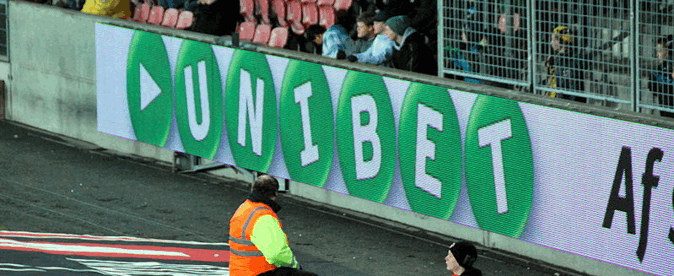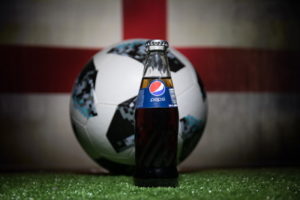Gambling Is Not As Heavily Involved In Sport Sponsorship As Many Think
 Do even a modicum of research into the world of sports and the sponsorship that comes from betting companies and you’d easily walk away with the opinion that it is rife beyond belief. Indeed, back in 2018 the number of betting firms sponsoring football clubs was described as ‘worrying’ and ‘disturbing’ by some campaigners, with GambleAware saying that young supporters had reached a ‘tipping point’ on the issue. With around 60% of clubs in the county’s top two leagues having sponsors with ties to the world of gambling, it was an understandable point of view.
Do even a modicum of research into the world of sports and the sponsorship that comes from betting companies and you’d easily walk away with the opinion that it is rife beyond belief. Indeed, back in 2018 the number of betting firms sponsoring football clubs was described as ‘worrying’ and ‘disturbing’ by some campaigners, with GambleAware saying that young supporters had reached a ‘tipping point’ on the issue. With around 60% of clubs in the county’s top two leagues having sponsors with ties to the world of gambling, it was an understandable point of view.
Yet whilst it’s entirely fair to say that football in particular has a less than healthy relationship with football, it might not be quite as true when it comes to sport in general. It’s certainly the case that horse racing and gambling share close ties, but there’s an argument that the sport would be in dire trouble without the money it receives from gambling companies, which perhaps excuses the link a touch. It’s undoubtably the case that the link between gambling and the sponsorship of sports is disproportionate in some cases, but does the fact that the suggested link from the betting industry’s critics is not quite as bad as is made out suggest that a mountain is being made out of a molehill?
Why Are Critics So Concerned

One thing that it’s important to point out is that the critics aren’t just upset over nothing. A study carried out by Dr Darragh McGee of the University of Bath, done over two years and involving the close work of football supporters aged between 18 in 35 in both Derry and Bristol, found that young men closely associate the sport with gambling. This is believed to be largely down to the increase in sponsorship of major sporting events and the associated marketing that has increased exponentially since gambling was deregulated by the Labour government in 2005.
Dr Darragh found that the majority of men he spoke to about the issue had multiple betting accounts and could barely watch a football match without having a number of bets in place. He was informed by one participant that the buzz he got from gambling was up there with ‘sex, drugs and rock ’n’ roll’, making gambling the worst of all of the addictions. Dr Darragh described it as having ‘dire consequences’ because of the manner in which the young men were getting themselves in debt in order to fund their gambling problems. The financial problems they found themselves in were compounded by ensuing mental health problems.
It is this increasing dependency on gambling of younger generations that has academics and campaigners worried, suggesting that more needs to be done in order to limit the link between sports and gambling advertising. Dr Darragh’s study found that many of the young men found the adverts on TV and online to be extremely enticing, with free bet offers and the like making them feel like they weren’t gambling with real money. When you consider that during the 2018 World Cup gambling adverts took up around 17% of all of the adverts shown on ITV during the live matches, you can understand why there is a real sense of concern that the industry’s influence is growing ever stronger.
Gambling Is 4th On The List Of Big Sponsors
 The agency Two Circles has done research into the money spent by big business on UK sports sponsorship and it discovered that gambling firms actually come fourth on the list, sitting being financial services and car manufacturers in terms of the percentage of money spent. The list looks like this:
The agency Two Circles has done research into the money spent by big business on UK sports sponsorship and it discovered that gambling firms actually come fourth on the list, sitting being financial services and car manufacturers in terms of the percentage of money spent. The list looks like this:
- Other – 26%
- Financial Services – 19%
- Automotive Industry – 14%
- Airlines – 13%
- Gambling – 12%
- Alcohol — 9%
- Soft Drinks – 7%
With the company predicting that it will hit £35 billion during 2019 and reach £48 billion by 2024, is it likely that gambling sponsorship’s influence on the sector is going to get even worse? The answer to that is almost certainly ‘no’, largely because regulators, charities, health bodies and the businesses themselves are being brought together under a National Strategy with the aim of tackling the issue of problem gambling in the United Kingdom.
Is It Worse Than Other Industries On The List?
 One of the most obvious questions that those that fear the country is turning into something of a ‘nanny state’ over the issue might ask is whether gambling is necessarily that much worse than any other thing on the list. Back in 2012, for example, Newcastle United were criticised heavily for accepting sponsorship from the payday loan company Wonga, which would fit under the ‘financial services’ tab in the list above. In 2018 it was felt that such companies needed to be ‘cracked down on’ because they were seen as making people ‘pay a poverty premium’, so are they all that much better than gambling firms?
One of the most obvious questions that those that fear the country is turning into something of a ‘nanny state’ over the issue might ask is whether gambling is necessarily that much worse than any other thing on the list. Back in 2012, for example, Newcastle United were criticised heavily for accepting sponsorship from the payday loan company Wonga, which would fit under the ‘financial services’ tab in the list above. In 2018 it was felt that such companies needed to be ‘cracked down on’ because they were seen as making people ‘pay a poverty premium’, so are they all that much better than gambling firms?
Equally we’ll all have seen the adverts for Pepsi featuring football stars such as Lionel Messi and Dele Alli. Go back as far as 2004 and you’ll see the likes of David Beckham and Roberto Carlos featuring in similar television ads. Given the explicit links between childhood obesity and sugary drinks, is there not an argument that soft drinks putting as much as 7% towards sports sponsorship is equally as problematic as the 12% of gambling firms? After all, not everyone who gambles has a problem with the subject, yet everyone who drinks a sugary drink is liable to suffer the health consequences. Equally major tournaments such as the Champions League are sponsored by alcohol companies like Heineken, so why doesn’t the damage done by alcohol face the same questions as gambling?
GVC Will Cut Football Advertising
 In amongst all of this comes the news that GVC Holdings are planning to end advertising during football, including both football shirt sponsorship and the adverts that appear on hoardings around football stadiums. The company has also called for an end to sports betting adverts being shown during any live or repeated sporting event. They did fall short of demanding a blanket ban, however, refusing to say that gambling sponsorship of horse racing should stop because of the importance of the money raised from the betting industry to the sport’s viability.
In amongst all of this comes the news that GVC Holdings are planning to end advertising during football, including both football shirt sponsorship and the adverts that appear on hoardings around football stadiums. The company has also called for an end to sports betting adverts being shown during any live or repeated sporting event. They did fall short of demanding a blanket ban, however, refusing to say that gambling sponsorship of horse racing should stop because of the importance of the money raised from the betting industry to the sport’s viability.
However, is their plan to stop advertising as entirely altruistic as they seem to be claiming? After all, GVC Holdings is the parent company of Coral, William Hill, Gala and Ladbrokes. As a result, there’s an argument that they’re merely trying to limit the amount of money that they’re having to spend competing with their own brands. Ultimately GVC Holdings is an investment group that has a responsibility to create the largest profits possible and less money being spent on advertising will certainly increase their profits. Equally their call that similar adverts should be banned in general would mean that they won’t lose out to other companies that fail to follow them into a self-imposed advertising restriction.



